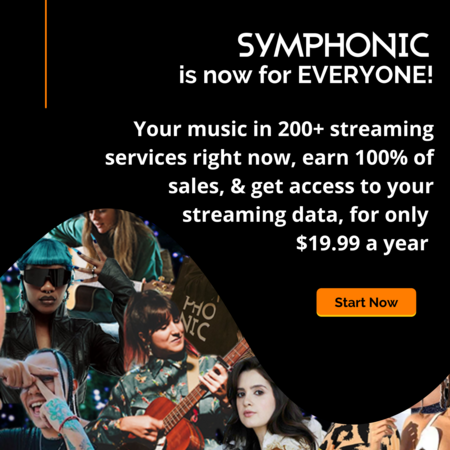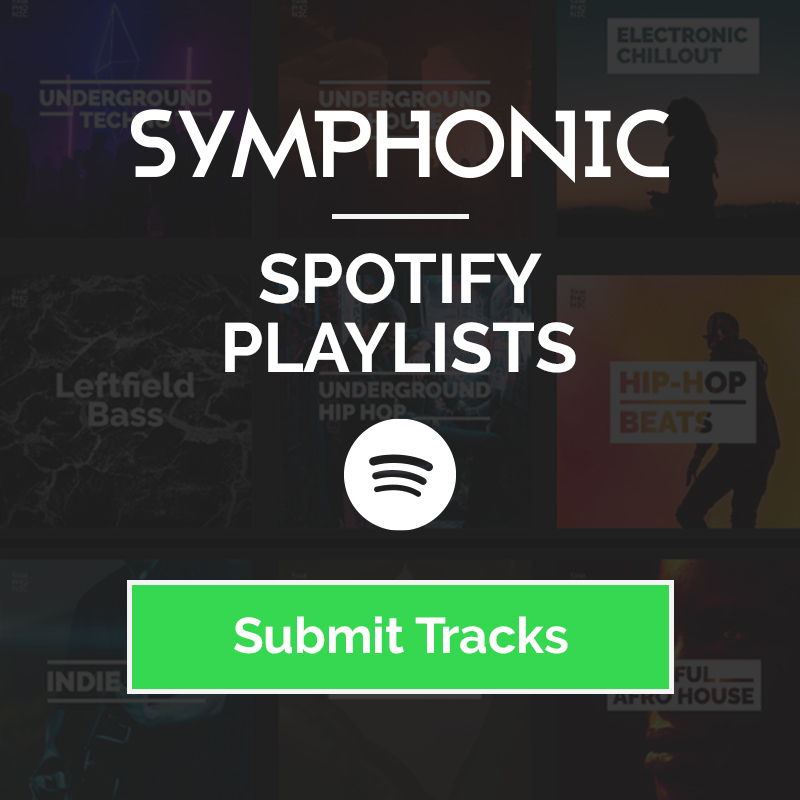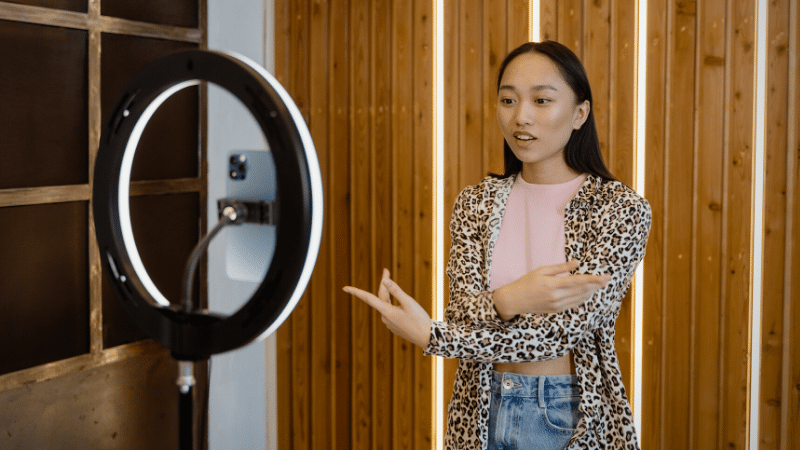
by Francesca | Dec 20, 2023 | Music Industry, Music Marketing
Are you on TikTok and wish you could make some money from your efforts? No problem! There are a couple ways you can make this happen in no time. From their official Creator Fund to independent marketing and more, here’s what you can do…
How To Make Money On TikTok as an Independent Musician
TikTok’s Creator Fund
Many creators complain about how much money, or lack thereof, they’ve made with the TikTok Creator Fund. However, they’re failing to keep in mind that a couple factors influence how much money you can rack in with the Creator Fund. From views to engagement and many other details, adhering to their community guidelines goes a long way.
Typically, users see around 2 to 4 cents per every thousand views. But if you regularly see a million views on your videos, you can expect a pretty penny in your account every year… and as we’ve all seen time and time again, consistency is key. The more you post, the better your videos will continue to perform over time. If you’re creating TikTok videos anyway, why not get paid for it?
To apply for the program, you have to meet a plethora of requirements. Some of which include:
- You must be 18 years or older.
- A legal resident of one of the 50 states, District of Columbia, or the territories and possessions, of the United States.
- Minimum 10K authentic followers.
- At least 100K authentic video views in the last 30 days.
- Post original videos in line with their Community Guidelines.
If these all sound like you, you’re ready to go. — Just open your account settings, click on Creator tools, then TikTok Creator Fund.
Then, just wait to be approved by their team and that’s all there is to it.
Royalties
Making sure you are collecting all the royalties owed to you across all platforms is an essential part of being an artist. On TikTok, it’s no different. However, while most DSPs pay creators based on the number of streams or views, TikTok has a very different model when it comes to royalties. TikTok pays royalties based on the number of videos created using your music (video views do not matter when calculating TikTok royalties).
Live Stream Donations and Gifts
On TikTok Live, your fans can interact with you in real time and gift you virtual gifts or monetary donations. Whether you want to just get on and chat, play a new song, or give a behind the scenes look right before your show, you can go stream for as long as you want (although 30 minutes is the recommended maximum time).
Influencer Marketing
As an artist with a distinct style, you are in a great position for sponsored posts or collaboration opportunities. Consider reaching out to brands who have a similar vibe or mission as you do, and spark up a conversation about how you can mutually benefit one another. This can range from either promoting their product in a video, doing a full review of said product, and more depending on the brand or product in mind.
Alternatively, you can do a version of this with other musicians within your TikTok community. From promoting each others merch to hyping up their upcoming show, this industry thrives of collaboration! And TikTok is no stranger to nurturing community.
Fans = Streams = $
Although many artists go viral on TikTok from sheer luck alone, there are many ways you can improve your chances and work with the algorithm to reach thousands of potential fans. In turn, you can translate those fans into followers and those followers into streams on Spotify, Apple Music, and more.
How? — Well, if your music is available on TikTok for other people to use, you’ll earn royalties ad exposure every time someone uses it in their video. In addition, if your other profiles are linked properly in your TikTok bio, people will be able to discover more of your work whenever they visit your profile. (Linktree is a great tool that gives you one link you can put in your bio that goes to everything you have to offer instead of having a million separate links.)
To wrap it all up…
No matter how good your music is, gaining recognition for your work on TikTok lies within how much effort you put into promoting yourself, making good content, and consistently posting on the platform. These efforts, however, will pay off… literally! In addition, authentically engaging with your audience, being creative, and being confident in what you have to offer will all help you grow your presence on the platform and, in turn, increase your potential to make money along the way.
//
Still not sure how to get your music on TikTok? Check this out…
Good luck!

by Francesca | Dec 13, 2023 | Legal, Music Industry
As the years go by, creators have more and more freedom over how they want to distribute their music and with whom. Whether you’ve signed a record label deal, you’ve hired a publisher or you work with an independent distributor like Symphonic, it’s important to understand what you’re entitled to as an artist. Look no further, we’re here to break it down. Here’s what you need to know…
Is My Record Label Also My Publisher?
Let’s Talk Record Labels…
A record label is the entity responsible for releasing your master recordings to the public on retailers, streaming services, radio, etc.. Major parts of a record label’s work involve promotion, marketing your music, landing sync placements and more. In addition, major labels often pay out advances to cover the recording costs for the album or single in addition to paying to produce physical releases like CDs or LPs.
(Contrary to popular belief, an advance is NOT free money. — Learn the truth about advances here.)
Think of it like this: A record label is to master recordings what a publisher is to musical compositions.
It’s actually not uncommon for some record labels, especially the majors, to launch publishing divisions in order to exercise more control over the music they release. By acquiring administration rights for the musical compositions (as well as whole or partial ownership), they are able to exploit compositions for licensing opportunities, register songs, collect all publishing-related royalties, etc.
(For example, think Warner Chappell Music; the publishing division of Warner Music Group, or Universal Music Publishing Group; the division of Universal Music Group.)
Publishers
While a record label is only responsible for the recordings songs that they control, a publisher is responsible for the underlying music composition itself, which includes covers by other artists that may have been released to physical or streaming formats.
Music publishers handle the administration of musical compositions. They collect royalties and licensing fees, seek out sync deals for TV and film, register copyrights, negotiate licenses, and more. Similarly to labels, publishers can also involve advances within their publishing deals. Typical publishing deals can include administration only deals, full publishing deals, or co-publishing deals.
Publishing Royalties
The two most common music publishing royalty types, central to any independent songwriter’s income, are performance royalties and mechanical royalties.
So, is my record label my publisher or not?
Short answer is, maybe.
Your record label is not always your Publisher, unless the record label:
- establishes itself as the publisher of your songs in your label contract,
- registers your songs in royalty collection societies, and
- collects the publishing royalties and distributes them to you.
If your record label claims to be the publisher but you have never received any publishing royalties (performance, mechanical, etc.) from your label or from your chosen PRO, then it’s time to confront your record label about this issue and get some clarity.
In Conclusion…
We hope this post has made the relationship between record labels and publishing a little easier to digest. With each service, you get different benefits as an artist. Depending on what you need, one path may be more beneficial than the other. — Regardless of what you choose, you are rightfully owed royalties for your published work. It’s important you understand what you’re owed and how to get it. Otherwise, you may be missing out on hard earned royalties and opportunities. Don’t just sit back and let corporate entities take control of your life. Get involved, do your research, and work with a team that has your back.
Good luck!
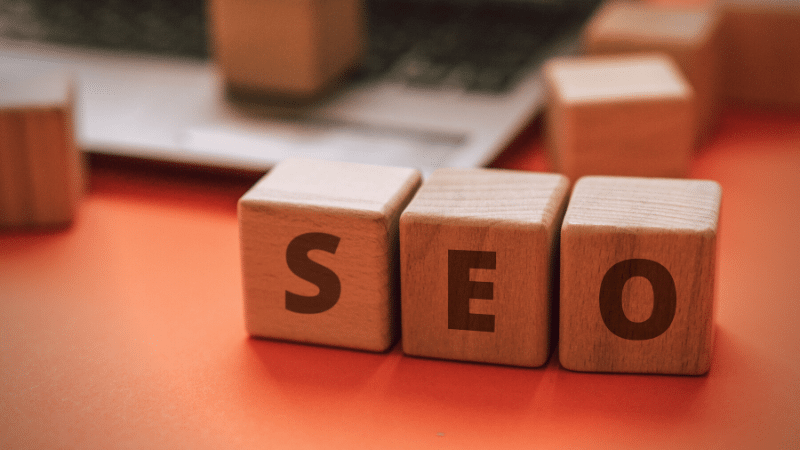
by Francesca | Dec 13, 2023 | Music Marketing
If you want to make sure you and your music are getting as much exposure as possible online, your SEO strategy can make or break your efforts. In this post, Dayna Young (Founder of Fred & Augustus, FANDA, and music marketer of 10+ years) gives the ultimate SEO rundown every musician needs to hear…
The Basics of SEO for Musicians
What is SEO?
Search Engine Optimization or, “SEO” for short. This fancy acronym is defined as “the process of maximizing the number of visitors to a particular website by ensuring that the site appears high on the list of results returned by a search engine.”
Simply put, for musicians, this means optimizing how you appear in search results so that you can grow both your online presence and revenue, and the number one reason you want to optimize your online presence is for your fans. After all, it is your fans who will search for you, your music, music videos, merch, and tour dates online.
When each fan does so, they’ll be at a different stage of their fan journey.
Fan Journey
A fan journey is the path that fans take between discovering you and becoming advocates for your brand. Perhaps they just read an interview about you, and now they want to search for and listen to the song mentioned. That’s the discovery phase; you’ll want to ensure you have an artist profile on all streaming sites. Perhaps they are in the exploration stage and want to watch the music video for the song they just listened to—do you have a YouTube profile?
At every stage of the fan journey, your fans are looking for varying degrees of detail and information, and it’s entirely within your power to curate their search experience.
What can you do?
The first step in any SEO project, whether for musicians or otherwise, is keyword research. To best structure your website, content, and online presence, you need to know what people are searching for about your artist brand. This means conducting research into your personal artist keywords, building a master list of those keywords, and then applying those keywords to your online strategy. (Don’t worry, we’ll address keyword research in a later section.)
We know that to be found online, you need a presence on key platforms. The most obvious and important place to start is with your own, branded URL and website. We cover how to build a functional website in this book, but for now, it’s important to know that an artist’s website is a key tool in engaging fans during the exploration, retention, purchase, and advocacy stages.
An artist website should draw fans further into your unique story. The essentials you need are a website with strong visual imagery, links to your music and social icons, and an email subscriber capture form. However in order to really engage and delight fans your website should also include music listening and video watch tools, your biography, your e-commerce store or fan club, tour dates—all displayed within an aesthetically appealing design.
However, your online presence extends beyond your website and across multiple platforms. In addition to your website, these platforms include social media, video, streaming, tour or ticketing sites, and your e-commerce presence.
Together your website and these platforms help infer information about you as an artist, and they are returned in searches fans conduct when they want to know more about you.
Keywords
Keywords are the words or phrases that fans use to search for your band online. There are three groups of keyword types:
- Short-tail keywords: “Lady Gaga tour”
- Medium-tail keywords: “Lady Gaga show Los Angeles” or
- Long-tail keywords: “Is Lady Gaga playing a show in Los Angeles near me soon?”
You can break these keyword groups down into two main categories.
- The first are keywords that can be used to build a brand. These are keywords that include your name, a song lyric, your band members’ names, album names, tour names, etc. An example of a branded keyword search might be “David Bowie’s Ziggy Stardust era.”
- The other category is non-branded keywords, which typically don’t include anything specific to your project name, band members, or the music you play. For example, if you’re a heavy metal band in Hollywood, California, a relevant non-brand keyword might be the search term “heavy metal bands near me” or “heavy metal bands in greater Los Angeles.” This said, non-branded keywords usually won’t be useful to artists, unless you’re the type of entity that targets and plays performances at corporate gigs, weddings, and other community-focused events.
How to Research your Keywords
Firstly, create a spreadsheet, which you’ll use for sifting through the keyword suggestions. You’ll add what makes sense (based on larger search volumes or more immediate relevance to your project) to your spreadsheet. This process can take some time, and you might need to try different combinations yourself to really dig deep and find the best keywords.
There are a number of tools available for your keyword research. Some of the best places to start are Google AdWords Keyword Planner, TubeBuddy Tool for YouTube, Free keyword tracker, Google Trends, or even a simple Google search will give you results.
To wrap it all up…
Obviously, it makes sense to Google your potential artist or band name before you commit to it. In much the same way you’d research whether a company name is taken and if the domains exist for that entity, you should do the same with your potential project name.
Of course, there are circumstances in which a conflict might be unavoidable. For example, when you have a common name like Mike Johnson or when your band name includes the name of something famous or common phrases, In these circumstances, it will be even more important that you build your SEO ecosystem, research and implement your keywords, create an aesthetically pleasing and functional website, and implement SEO, voice search, and more to cement yourself in such a grand landscape. But with these tips, you’re on the right track.
Good luck!
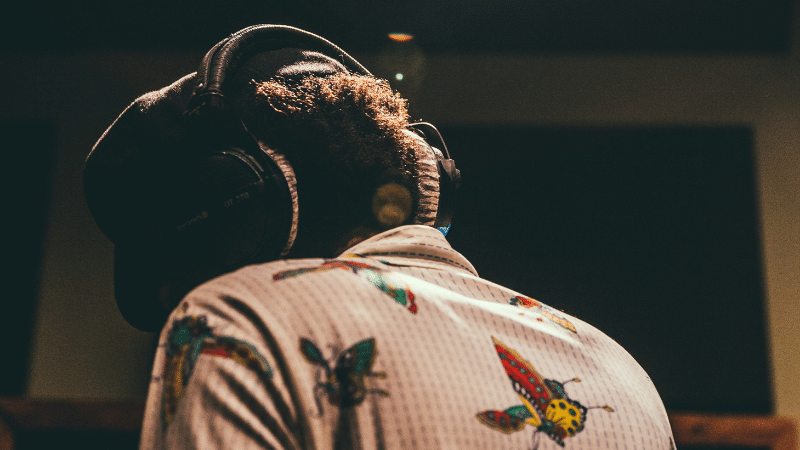
by Francesca | Dec 13, 2023 | Music Industry
Self publishing your music comes with a lot of benefits. You don’t have to share your copyrights with anyone, you aren’t bound to any publishing deals and you get ultimate control over where your work is used and how. Keep in mind, self publishing isn’t for everyone. You need to be able to commit significant time and effort to doing everything a publisher would usually do and more. But if this is something that you’re ready to take on, here’s how to do it right.
How To Self Publish Your Music
Let’s Talk Basics…
Self publishing your songs means you take on the role of both the artist and the publisher. Being a self-published writer ultimately means that you hold all the rights to your Intellectual Property (IP), which means you would be in full control of how your compositions are used and would receive all royalties associated with your share of your compositions.
This is awesome, but these perks come with a little extra work. If you’re still interested, here’s what you’ll need to do to self publish your songs…
Step 1: Make Sure Your Music Hasn’t Been Published Yet
If you’ve worked with a distributor before, you may have opted in for publishing services without even realizing it. For example, our publishing administration services are very popular with our own clients. Before you do anything, definitely make sure this doesn’t apply to you.
Step 2: Register with a PRO
In order for you to receive the royalties you’re rightfully owed, your songs need to be properly registered with a Performing Rights Organization like ASCAP, SESAC or BMI. PRO’s rely on the information you provide to determine who they need to pay and how much.
Start setting up your company by going to either www.ascap.com or www.bmi.com to obtain/fill out an application.
- If you are a songwriter and have not yet affiliated, make sure to only do so with only one of these, not all of them.
- To ensure you do everything right, check out this post to make sure you don’t miss anything.
Step 3: Sign Up with the MLC
The Mechanical Licensing Collective maintains the world’s most thorough database of music composition copyrights and their owners. They collect mechanical royalties from digital music streaming services and transmit those royalties to copyright holders based on the ownership claims.
Signing up with them ensures that you get all the royalties that are rightfully owed to you. You’ll need to “Connect to Collect” and become a Member of the MLC in order to collect the digital audio mechanical royalties owed to you.
Step 4: Time to Promote
Once you’ve completed those steps, you can finally start getting your publisher’s share on top of the writer’s share. Now is the time where the duties of a publisher fall onto you.
Typically, your publisher would be the one networking, seeking out sync deals for TV and film, registering copyrights, negotiating licenses, and more. When you self publish, it’s all on you.
In Conclusion…
Self-publishing typically just entails registering with a PRO to be able to manage and publish your own compositions, but it doesn’t have to end there. If you want to go even further, become a publisher and start your own publishing company! Doing so lets you do everything yourself and also gives you the ability to relay your services onto other artists who need it.
You got this.

by Francesca | Dec 4, 2023 | Legal, Music Marketing
Streaming fraud is a serious problem in the music industry. In a world that’s obsessed with stats, it’s understandable why. But the issue runs deeper than just buying streams. Even if you decide to work with a service that claims to be legitimate, they might be using the same illegal methods you’re trying to avoid. Faking success, whether intentional or accidental, is way more harmful to your career than helpful. It’s up to you to be conscious of scammers, bots, and misinformation, but we’re here to provide a helping hand.
Why Independent Artists Should Beware of Streaming Fraud
Here’s what you need to know…
Buying fake streams (along with many other illegal practices) on major streaming platforms like Spotify is nothing new. As easily as fraudulent users can steal an artist’s music to leech royalties, they can also buy streams from illegal third parties and fake them with illegal bots and click-farms. Of the most common, third parties who promise playlist placements or a specific number of streams in exchange for compensation are likely using illegitimate practices without your knowledge.
Although universal technology has advanced enough to make it easy for people to utilize black hat strategies like these, Spotify has been working tirelessly to implement their own best practices and systems to combat stream manipulation on their site.
For example, Spotify uses “a combination of algorithms and manual review by employees to detect fraudulent streams and aim to remove fake user accounts and filter them out from our metrics on an ongoing basis, as well as to require users to reset passwords that we suspect have been compromised…”
On that note, this post breaks down the biggest issues that streaming fraud causes in this industry and how, whether intentional or by accident, doing so can hurt your career for years to come.
1. It steals rightful revenue from other independent artists.
Streaming services operate with a system called a “shared pool” model, which splits all income according to the total number of streams accrued. So if the numbers are being sabotaged by fake streams, real musicians with honest streams don’t get the money they deserve.
According to Rolling Stone, “three to four percent of global streams are illegitimate streams…That’s around $300 million in potential lost revenue moved from legitimate streams to illegitimate, illegal streams.” //
2. It limits future opportunities.
Higher numbers don’t equal more talent, and everyone knows it. It’s not hard to tell if your streams are fake, and when they are, boy does it look bad. When labels see you’ve faked your thousands of “listeners”, they share that info with the industry. Then, you’ve lost your reliability and any opportunities that could have transpired had you just been honest and worked for real fans like everyone else.
3. Your account will be suspended and/or deactivated.
With today’s constantly evolving technology, streaming platforms have adapted to be able to automatically scope out fraudulent streams and artists. Once you’re caught, your account will be suspended or deactivated all together, forcing you to start from square one.
4. Lastly, you’re straight up wasting your time & money.
The fact of the matter is, all the time and money you spend falsifying streams and using black hat tactics to cheat your way to the top could’ve been spent on some legitimate marketing, proper ads and other perfectly good tactics to organically improve your stats online.
The key is to do your research and find reputable services that you can be sure are doing the right thing. Some services will claim to get you thousands of streams or followers overnight, and what they’re really doing is using bots of their own to cheat the system.
Our advice: Be very careful with how and where you use your hard earned money. Always do your research on every company you plan to go into business with. Talk to prior clients, review testimonials, and make sure you’re spending your dollars wisely.
In Conclusion…
Let’s face it. There’s no way to suddenly gain thousands of dedicated monthly listeners overnight. There are, however, tons of legitimate ways to make it happen over time. The trick is to strategize wisely, always do your research, and work on growing an exceptional team to help you along the way.






